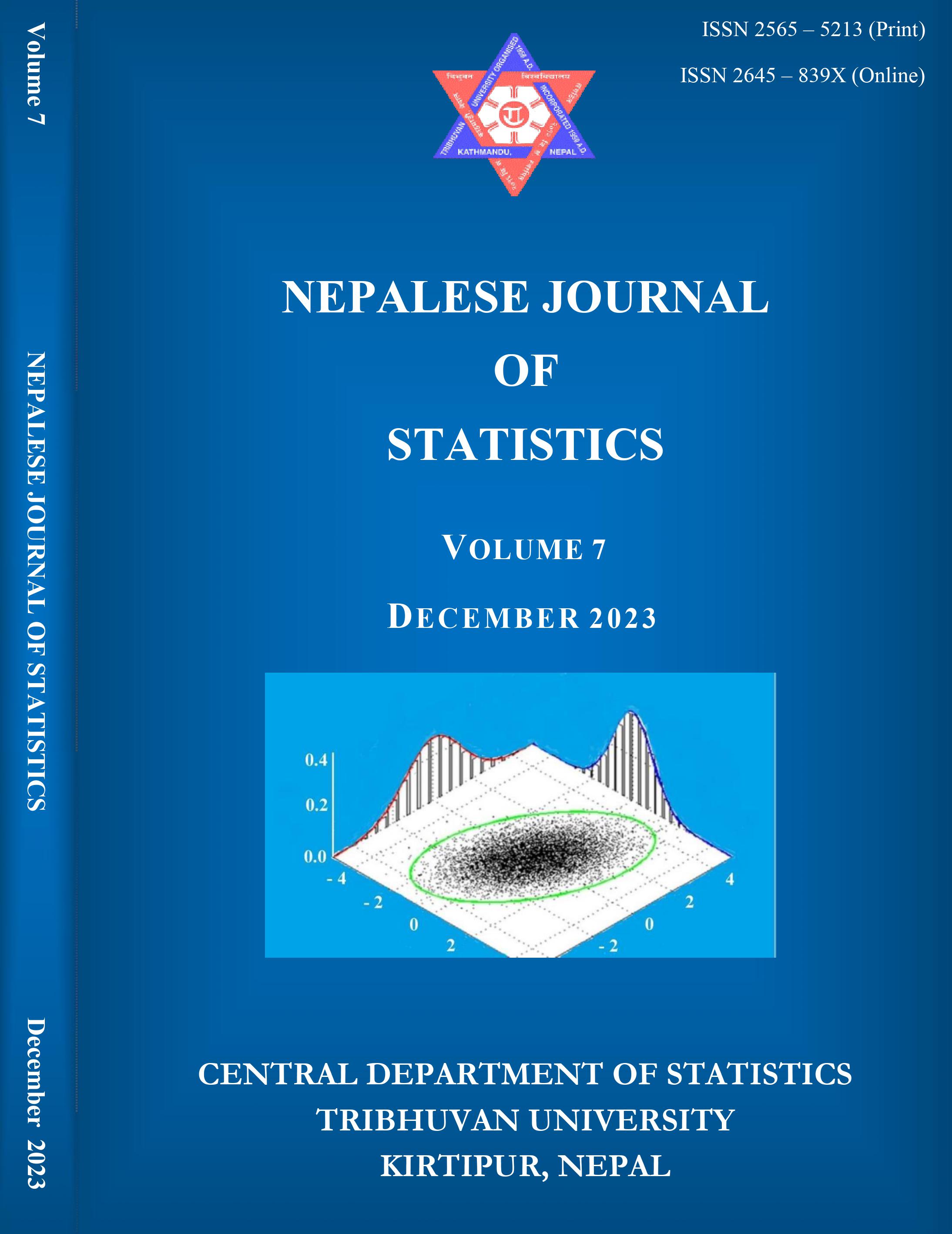Systematic Review on Factors Associated with Female Age at Marriage
DOI:
https://doi.org/10.3126/njs.v7i1.61058Keywords:
Age at marriage, determinants, PRISMA, systematic reviewAbstract
Background: Female age at marriage is one of the major indicators of population dynamics associated with age at which marriable couples are united and simultaneously acts of giving new childbirth with new family roles. Occurrence of marriage before the body being physically fit and mentally matured results in many adverse consequences. However, less attentions have been given to the variability of female age at marriage which can be influenced by different factors.
Objective: This review paper is an attempt to explore significant factors associated with female age at marriage, and to mark those factors as explained by model-based statistical effect size.
Materials and Methods: Following the PRISMA- Preferred Reporting Items for Systematic Review and Meta-Analysis guideline, three databases EMBASE, PubMed and Scopus were used to identify relevant articles combining key search terms using Boolean operations. From these databases, a total of 605 eligible articles originally published in English language till the date of 20 November, 2023 were identified. Applying the inclusion and exclusion criteria only 17 papers which had used statistical models were ascertained for final review.
Results: The effect size which was found significant at 0.05 level of significance explored that female’s education, place of residence, religion, caste/ethnicity, birth cohort, current age, female’s work status, type of occupation, wealth index, husband’s education are the major determinants, which are observed to be significantly associated with female age at marriage.
Conclusion: Female age at marriage is found to be varied from place to place, region to region and country to country. As the level of education increased, the possibility of acquiring early age at marriage has been reduced significantly. The demographic, socio-economic, gender and community factors played significant roles at the timing of females age at marriages. Moreover, female age at marriage has a considerable impact on fertility measures and population structure. Hence, policy relating to improving female age at marriage and its associated effective enforcement of law are required to meet the SDGs targets.
Downloads
Downloads
Published
How to Cite
Issue
Section
License
© Central Department of Statistics, Tribhuvan University, Kirtipur, Kathmandu, Nepal
The author of article must sign the copyright permission or the author must assign copyright to the Central Department of Statistics, Tribhuvan University prior to publication.
All rights reserved.




